2023: the year in charts
City Hall Watcher #259: A look back at the data and plots that moved municipal government this year
Happy Holidays. Hope your chestnuts were roasted on open fires. Less sure about that whole Jack Frost nose thing.
And yes, though it has indeed been said — many times and many ways — I do want to again thank you for reading this newsletter.
To close out the year, here’s a look back at some of the charts and stories City Hall Watcher published in 2023.
— Matt Elliott
graphicmatt@gmail.com / CityHallWatcher.com
Read on the web / Archives / Subscribe
2023: the year in charts
Previous years, in charts: 2019, 2020, 2021, 2022
January
Ah, the innocence of January. Having just come off a pretty dull general election, we all settled in for another pretty dull four years of Mayor John Tory. The former mayor — though we didn’t know he’d be the former mayor yet — spent much of the month doing game show reveals of parts of his 2024 budget plan.
I tried to make sense of some of the more confusing aspects, starting with Tory’s pre-launch teasers. Once we actually got the information, I looked at the significant changes in the budget, including big increases to the mayor’s office budget and the Office of Emergency Management. (Hosting the World Cup counts as an emergency, apparently.)
Special guest Will Meneray also dropped in for a detailed look at the capital budget, and I took a detailed look at revenue projections, noting that the City was gambling on, well, gambling revenue. In non-budget news, I reflected on a year of lobbyists lobbying Tory, and guest Kaila Hunte examined the inequity of City compensation for serving on boards and committees.
February
The bomb dropped. John Tory announced his intention to resign. But then he decided to stick around for a little while longer, shepherding through approval of a 2023 budget he had architected but wouldn’t be around to implement.
I made liberal use of the exploding-head emoji.
The budget debate was a bit more dramatic than it would have been otherwise, but Tory didn’t exactly face stiff opposition. Meanwhile, lobbyists tried to change Toronto’s vacant home tax, and guest Adin Wagner dug into why Toronto’s residential architecture is so bland.
March
In the strange liminal space between Tory’s resignation and the April 3 kick-off to the mayoral by-election, I passed the time by putting together a very short Council Scorecard for the very short third Tory term. It was an opportunity to look at some of the long-serving councillors and how their relationships changed with the mayor.
Also floating in the liminal space: lobbyists proposed a gosh-darn hovercraft, I kicked off some campaign finance analysis — I’d end up doing a metric boatload of campaign finance analysis this year — and looked at the sunshine list, where TTC CEO Rick Leary claimed the top spot.
April
The race to replace Tory began, though it would take a couple of weeks before the eventual winner would register. I looked back at what recent successful mayoral campaigns had to spend to win. And after Councillor Brad Bradford and Councillor Josh Matlow jumped into the race, I published a list of past major donors to their council campaigns.
While the campaign was unfolding, the business of City Hall continued. An April Council meeting saw some very tense moments during a debate about encampments. And Matt Alexandris dug into the data about increasing rent costs versus homelessness numbers.
May
Most of the month was dominated by the election, but I still found time to create a chart of the biggest capital spending areas by ward.
And in other major non-mayoral news, Council voted to legalize multiplexes city-wide, giving me inspiration for my favoute City Hall Watcher subject line of the year: “Toronto Council and the multiplex of madness.”
Over on the election beat, I analyzed candidate voting records on a range of issues, with a special focus on housing. I also launched a special daily PLATFORM VIEW feature. By the time election day rolled around, I found time to analyze and rate 29 separate policy proposals.
June
Tory’s reappearance — and endorsement of former councillor Ana Bailão — meant more fingernails were chewed on election night than expected. Still, the end result was what everyone figured: Mayor Olivia Chow won.
I spent election month doing lots of election coverage. In addition to PLATFORM VIEW, I also maintained a poll tracker and endorsement matrix. Data from the City meant I could go deep on advance voting numbers too.
Even without a mayor, Council kept going too, approving bike lanes on Bloor West. My favourite piece of the month, though, was probably Adin Wagner’s FOI-fueled investigation into City Hall’s quixotic attempt to track down the people behind a pair of Twitter accounts opposing Bailão and Bradford’s campaigns.
July
Would an earlier Tory endorsement of Bailão have changed the outcome of Toronto’s mayoral by-election? I put on some proverbial gumshoes and did the detective work. One thing’s for sure: a Biblical plague of frogs would have almost certainly wised some people up.
As Chow took office, I also published a series of depressing charts about Toronto’s economy and financial situation and covered Council’s vote to allow (some) drinking in (some) parks.
Meanwhile, guest Damien Moule wondered how it makes any darn sense for City Hall to have a great big pile of money in reserve while also complaining about a financial crisis.
August
There was no break, and no brakes, in August, as Chow wasted little time putting her Executive Committee together and tackling City Hall’s budget chasm.
The mayor also had her first meetings with lobbyists, and I managed to find a bit of time to do an Intersection Inspection about Playter & Danforth.
September
Chow passed the first big test of her mayoralty, getting Council to support moving forward with a series of new taxes and revenue tools designed to address the aforementioned fiscal chasm. I put a spreadsheet together to show how everyone voted.
I also presented a graphical look at City Hall’s org chart, following a wave of retirements and resignations, while Matt Alexandris looked at the data on the city’s toxic drug supply and Lobbyist Watch noted some snowplow lobbying.
October
With nearly all the data in from the by-election, I celebrated the 250th issue of this newsletter by presenting some data on the swankiest of swanky campaign fundraisers that powered some mayoral candidates.
Uber Canada was also marking a milestone, as I chronicled the tenth anniversary of lobbying. It wasn’t a particularly happy birthday, as Chow and Council opted to put a cap on the number of licenses available to ride-share drivers just two weeks later.
Meanwhile, as I took a break to contemplate my own mortality, Damien Moule returned with his own detailed and fascinating look at campaign donations — and how municipal support correlates to partisan affiliation.
November
November saw a pair of notable debuts. First, the first Council Scorecard for Chow’s term was published, showing general city-wide support for the new mayor, with a pair of very notable exceptions.
Second, Chow and Premier Doug Ford debuted their New Deal, with the premier agreeing to take the old-and-busted Gardiner Expressway off Toronto’s hands. The mayor threw in the DVP too. Still, whether the federal government will ever become an active player in the deal-making remains a big TBD.
Council also approved a new housing strategy, while lobbyists proposed some log cabins.
December
We closed out this year by digging into the finer details of the New Deal, which showed that there’s a lot of money at risk if Prime Minister Justin Trudeau doesn’t get involved soon.
Meanwhile, a three-day Christmastime Council meeting had me feeling a bit grinchy, as Council spent a lot of time debating the ceremonial names of things. And Matt Alexandris returned with a look at TTC delays — which probably had a lot of people feeling pretty grinchy, too.
The week at Toronto City Hall
WEDNESDAY: 🏆 Bid Award Panel contract award of the week: up to $6.6 million for coffee, tea and juice.
City Hall Watcher #259
What a year! I can only imagine what kind of charts and graphics 2024 has in store. I’m ready for thrilling surprises and exciting twists. But if I could make one request: no more municipal elections, please.


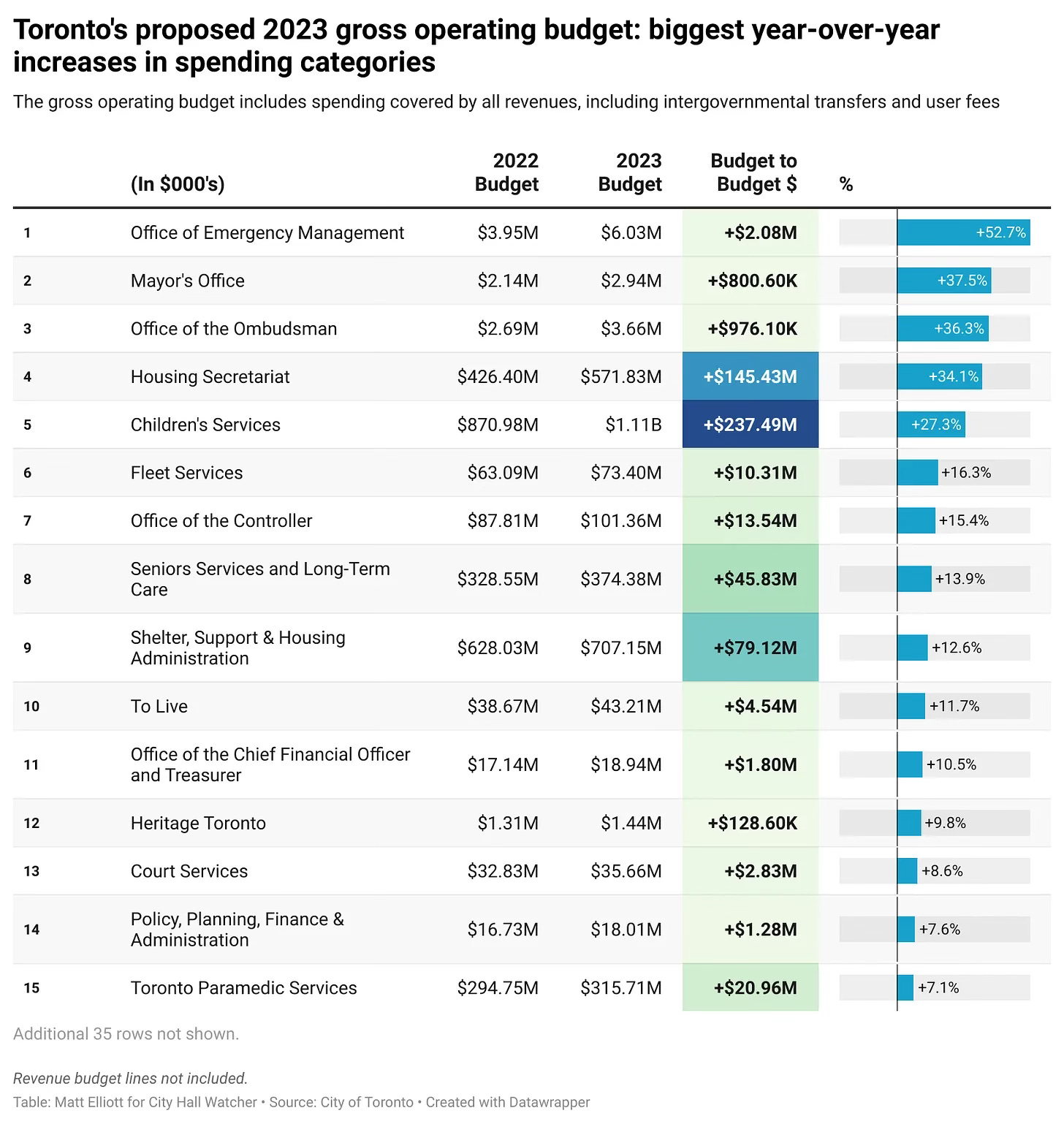
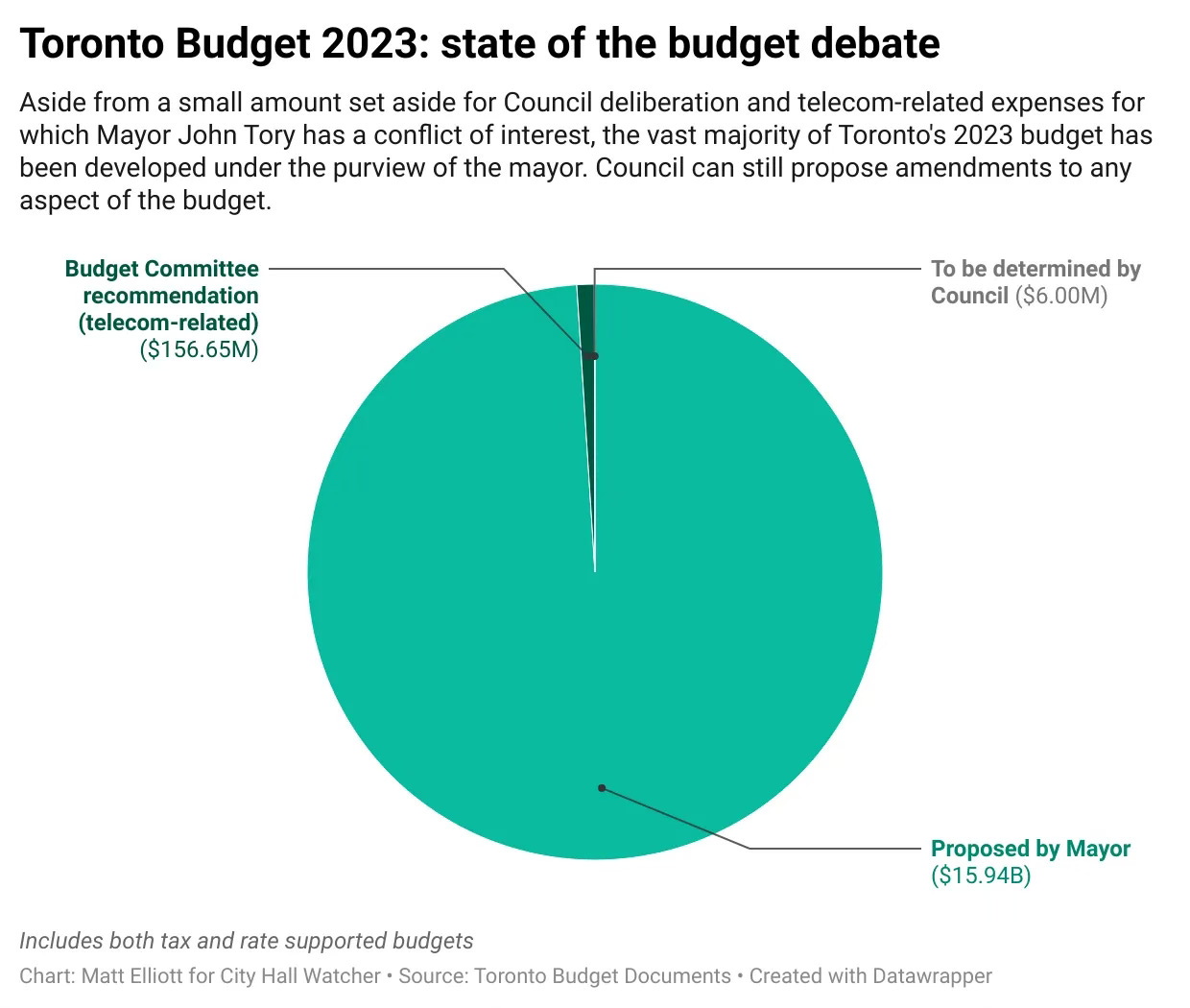
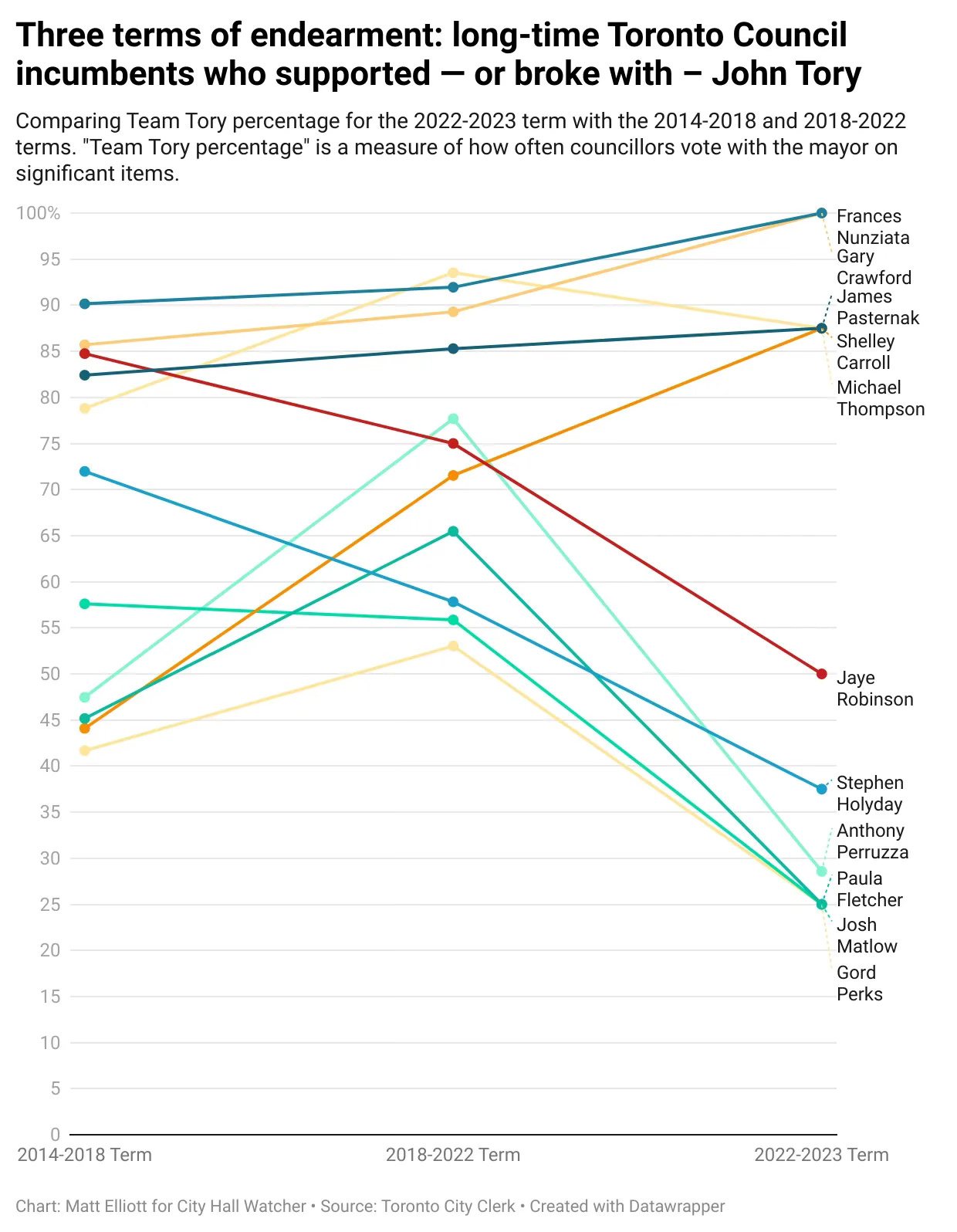
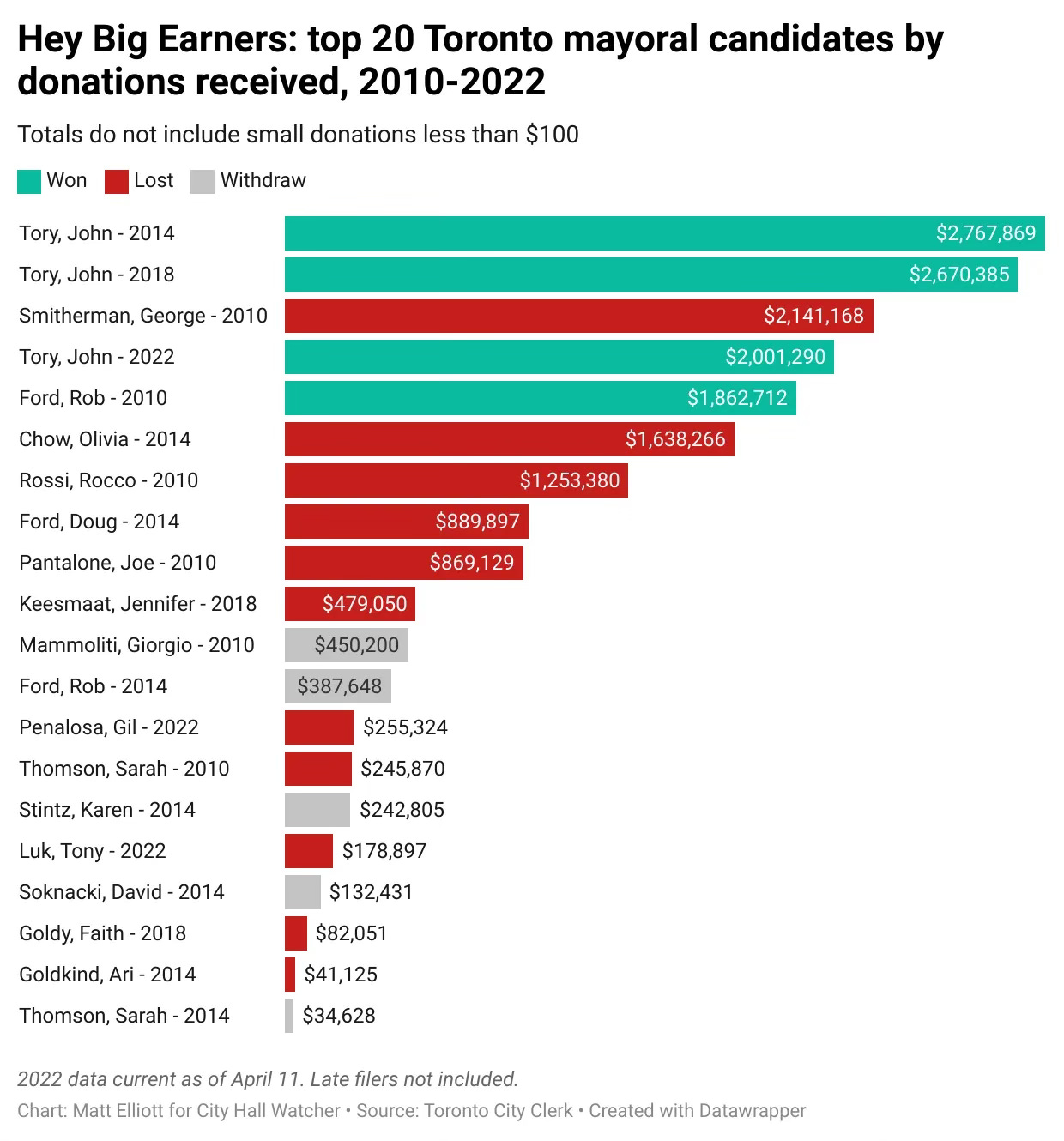
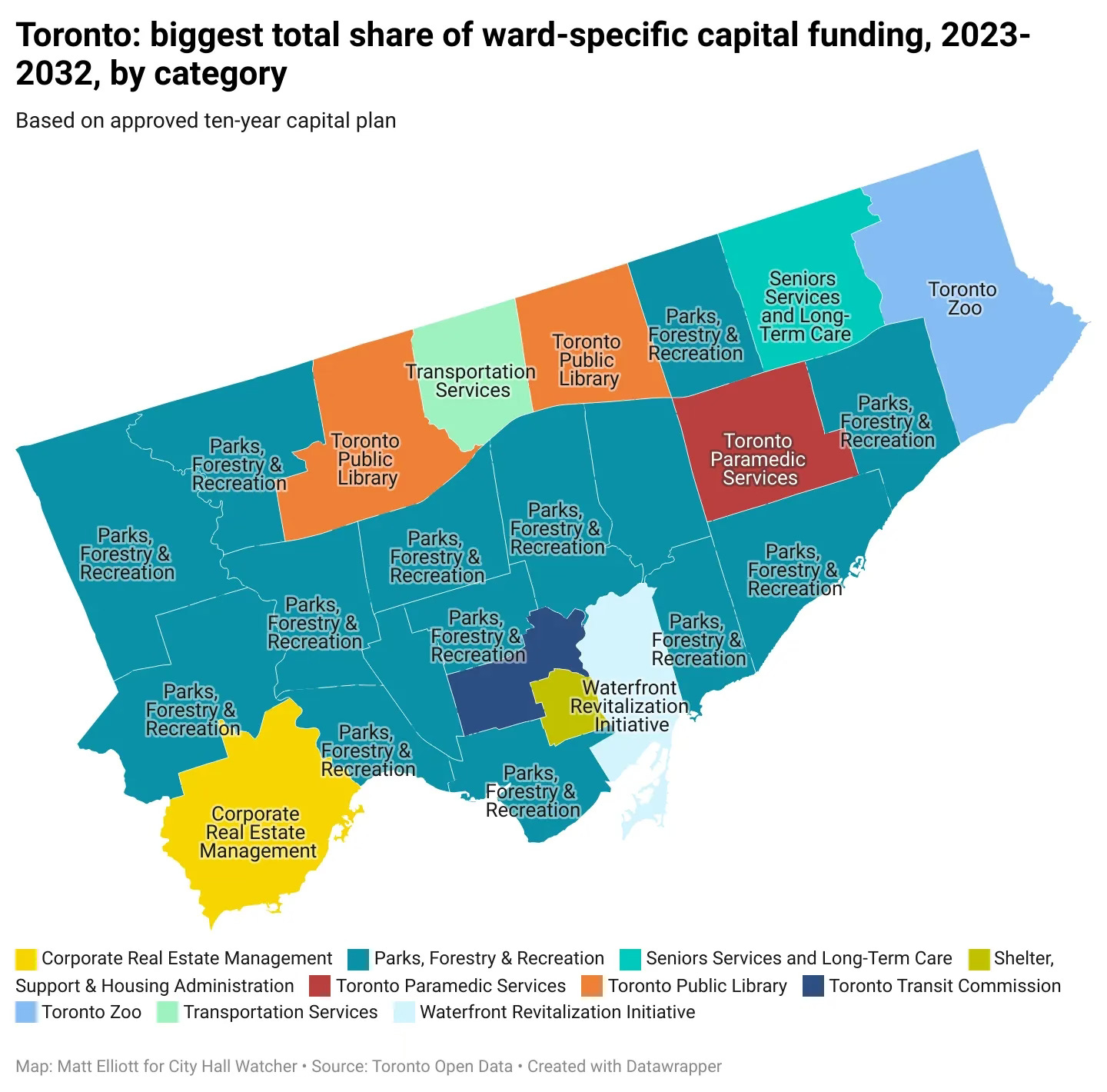
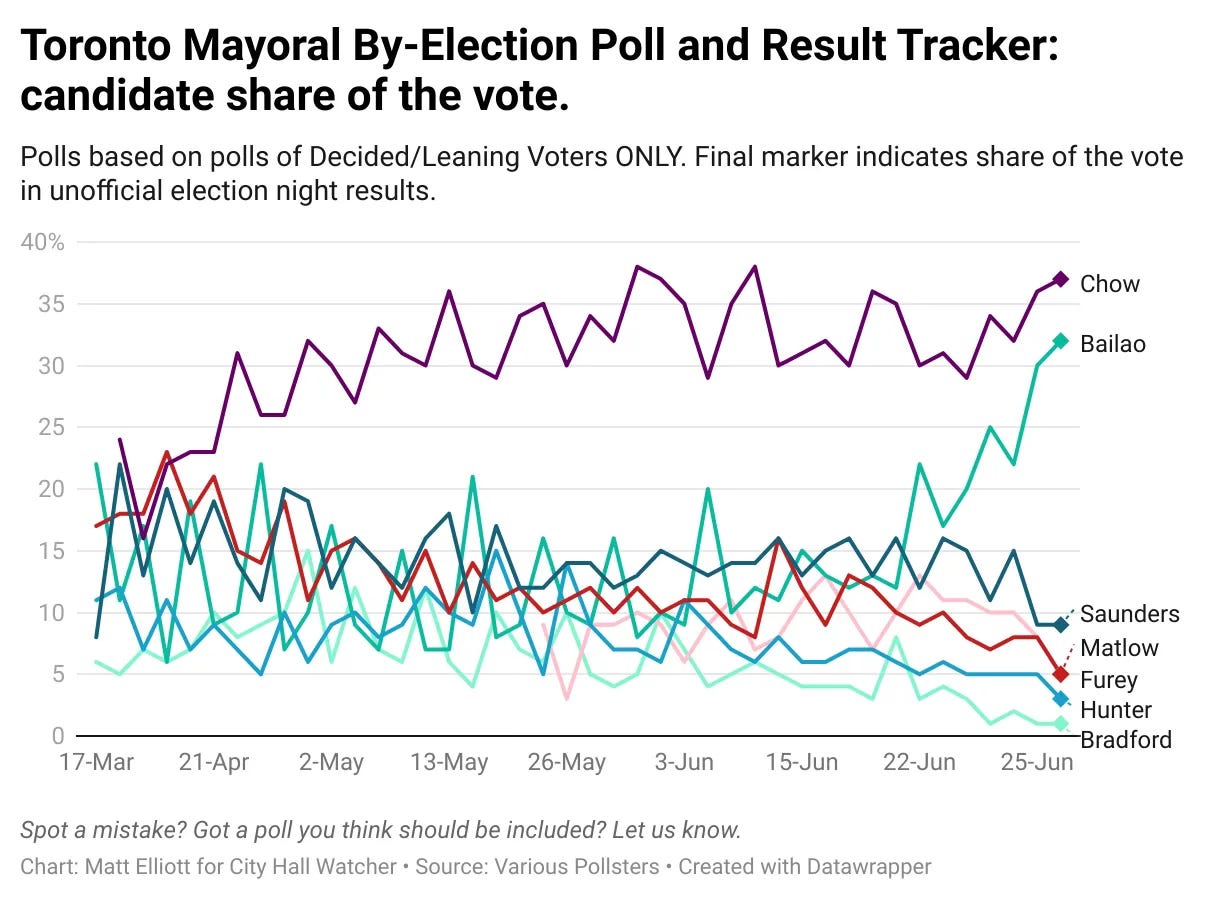
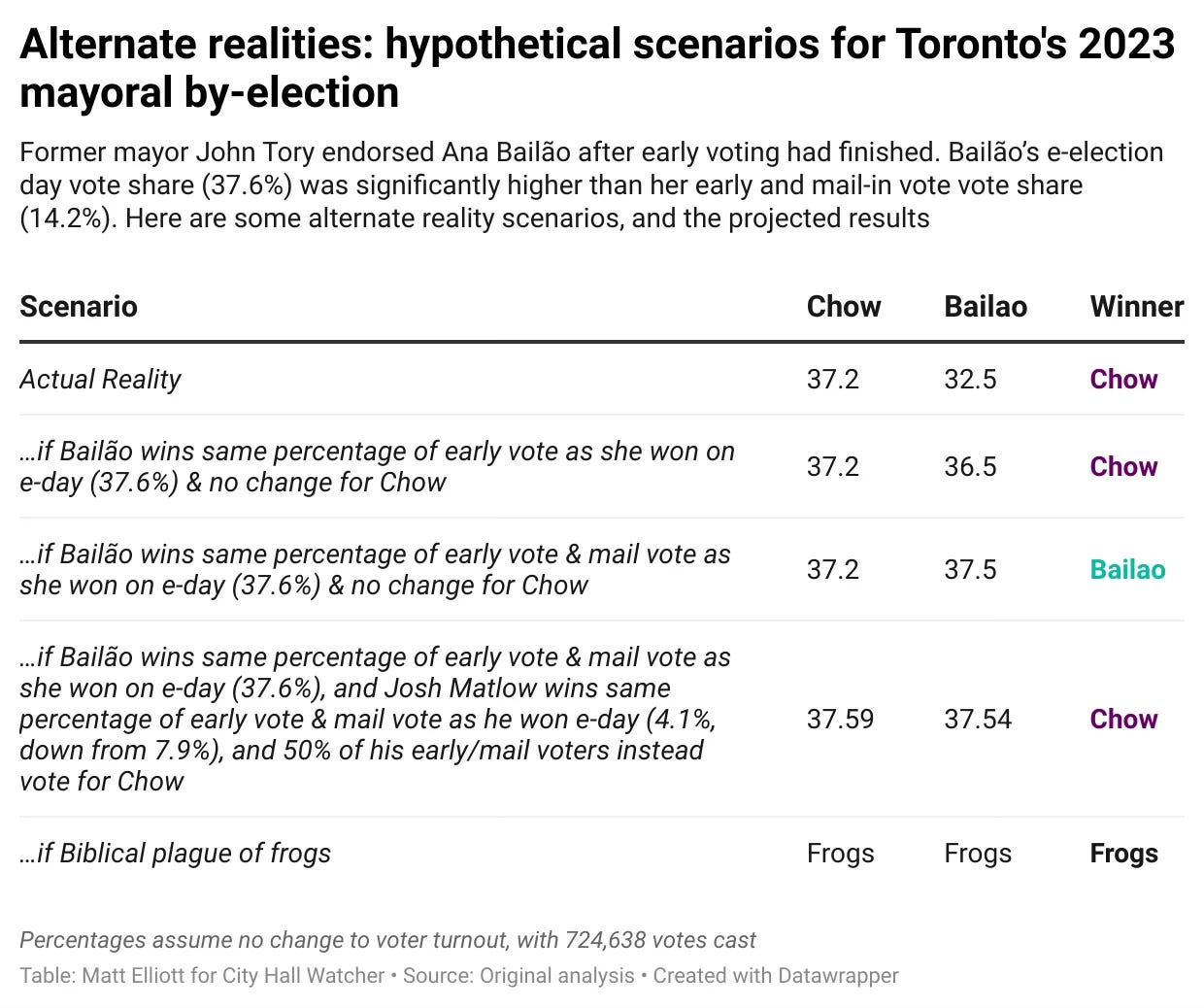
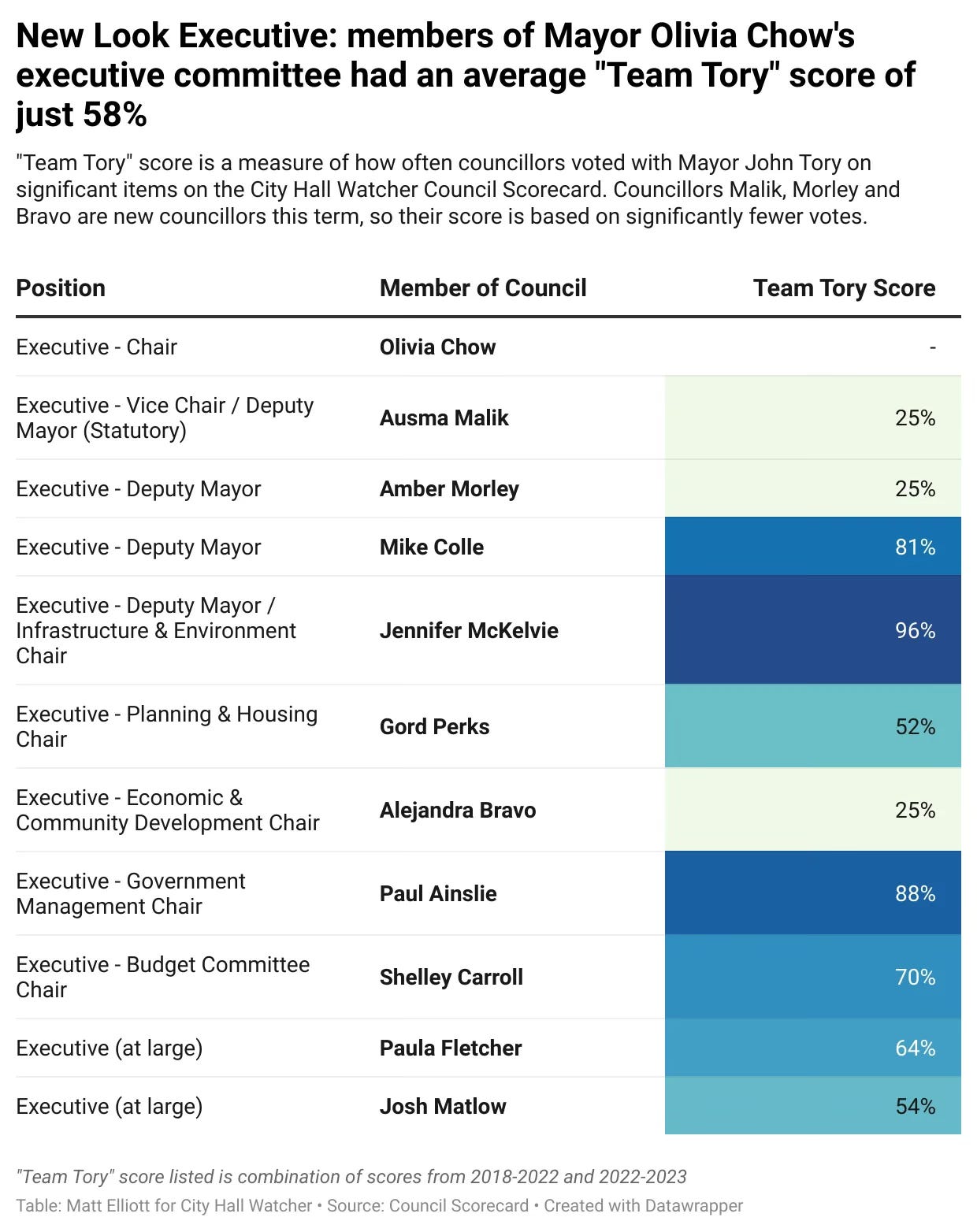
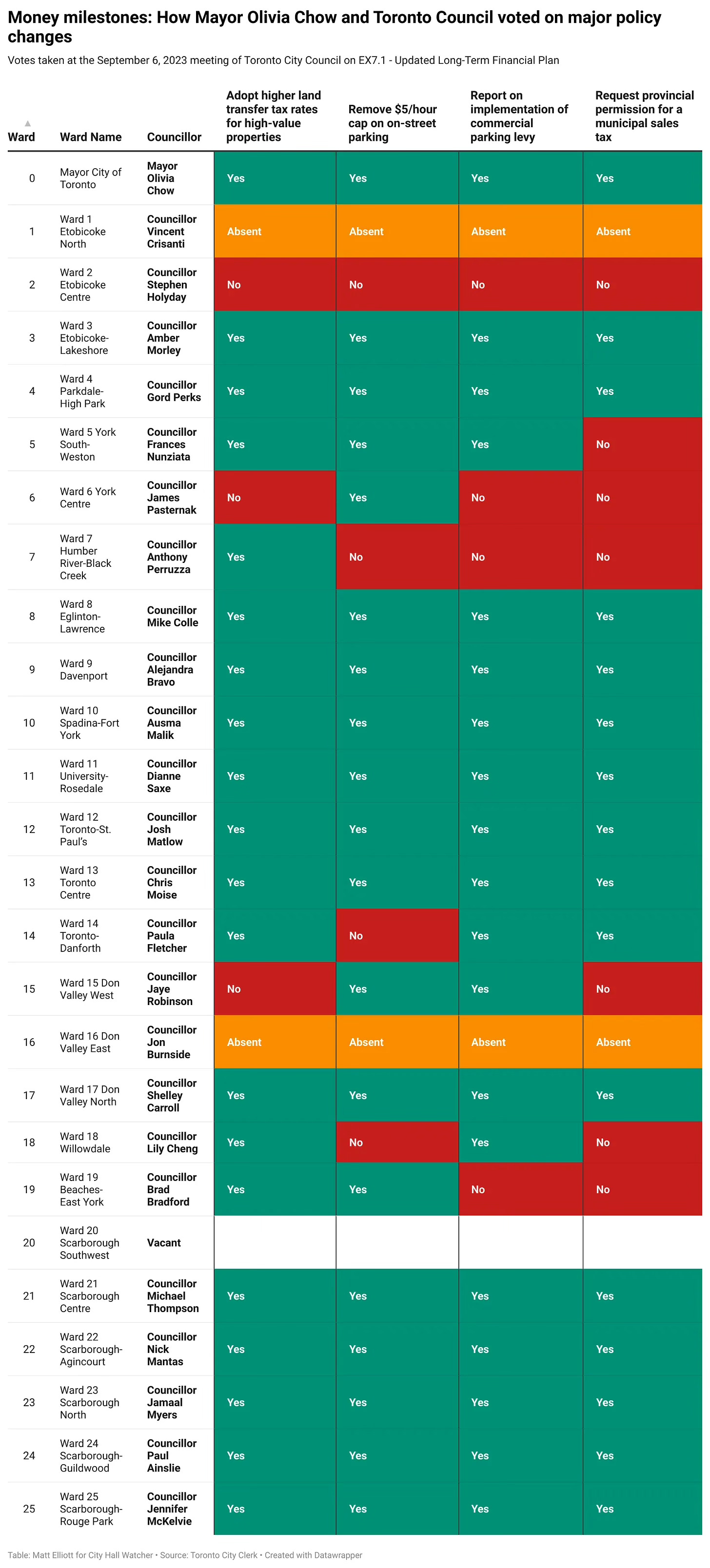
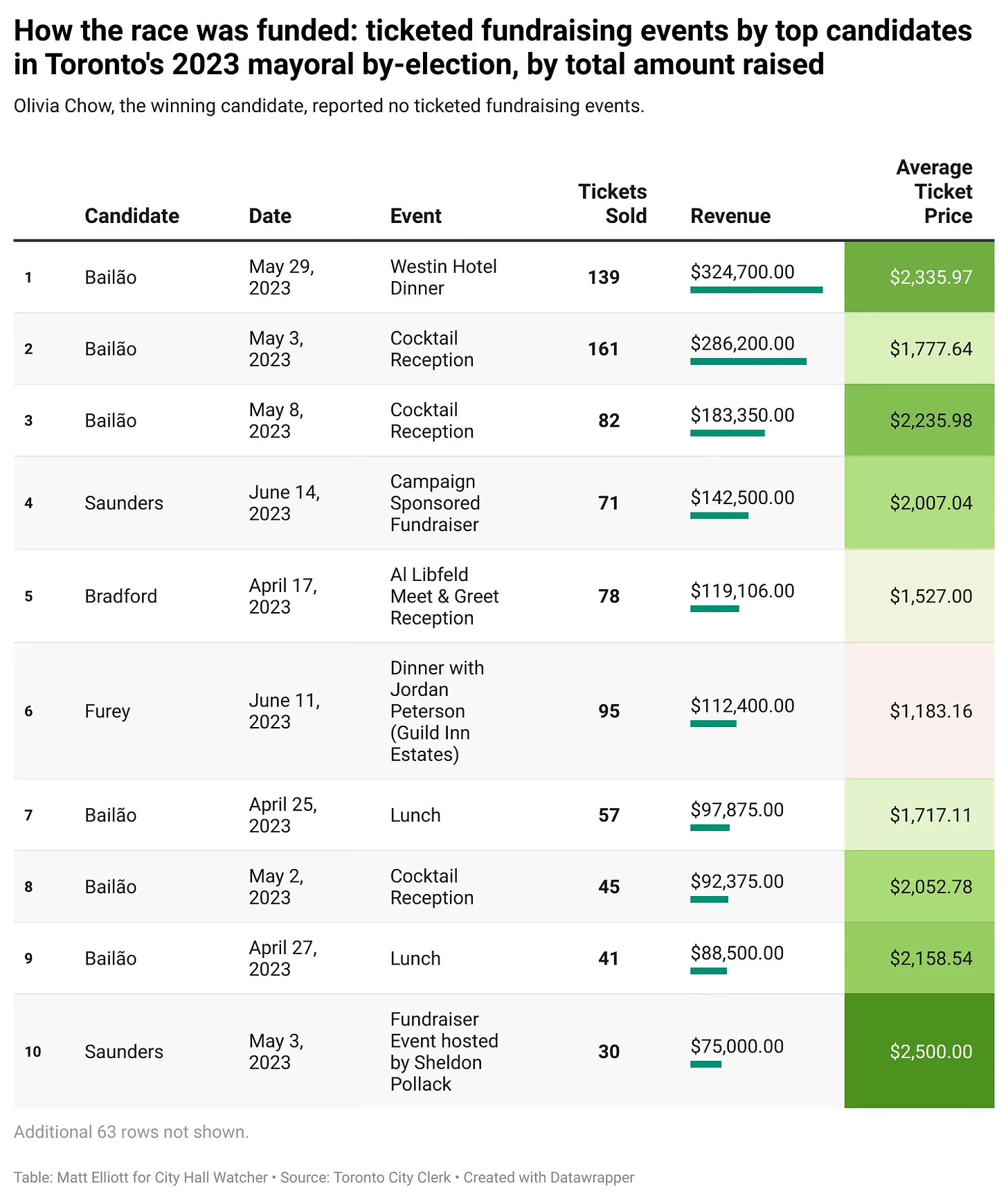
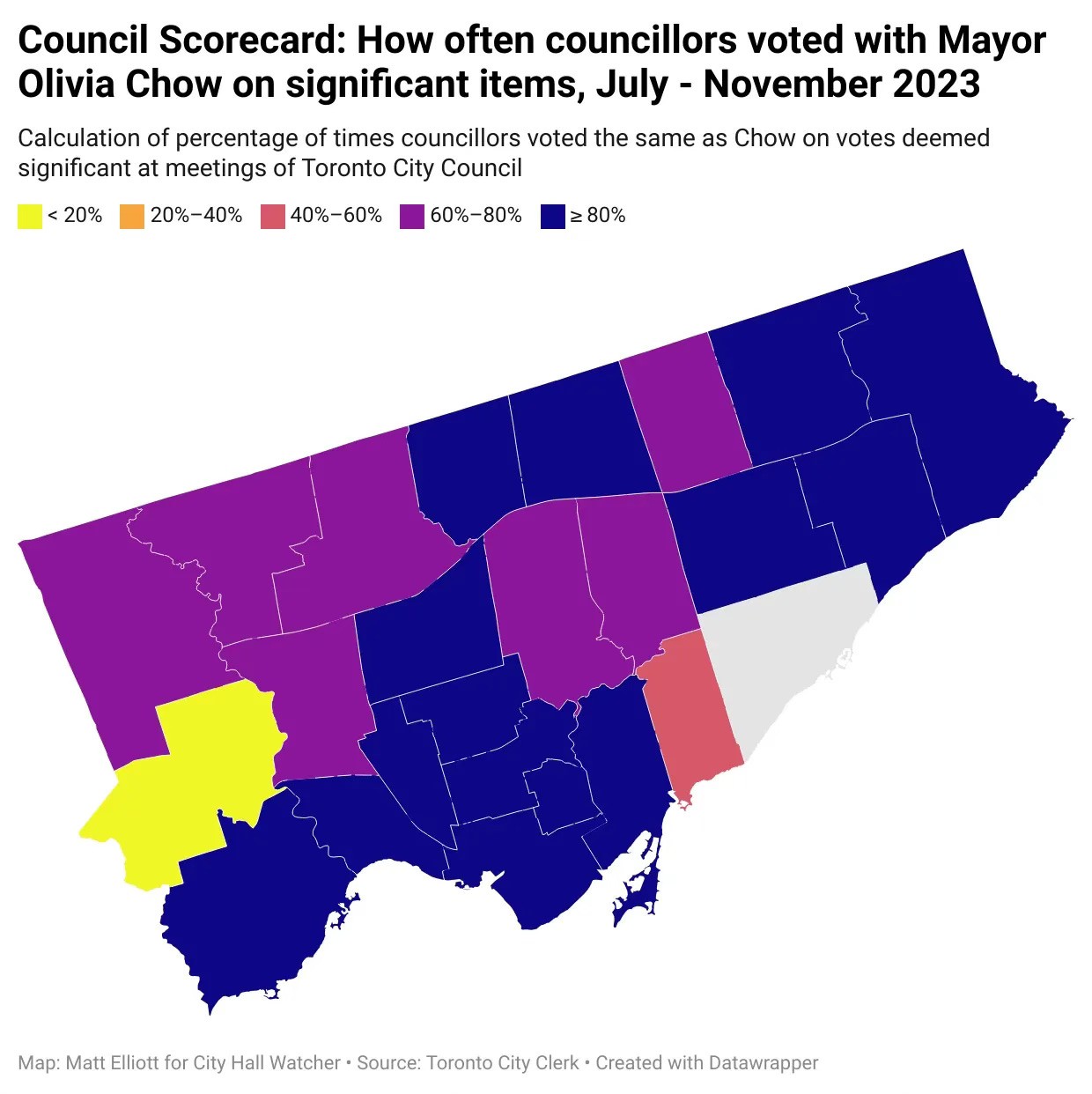
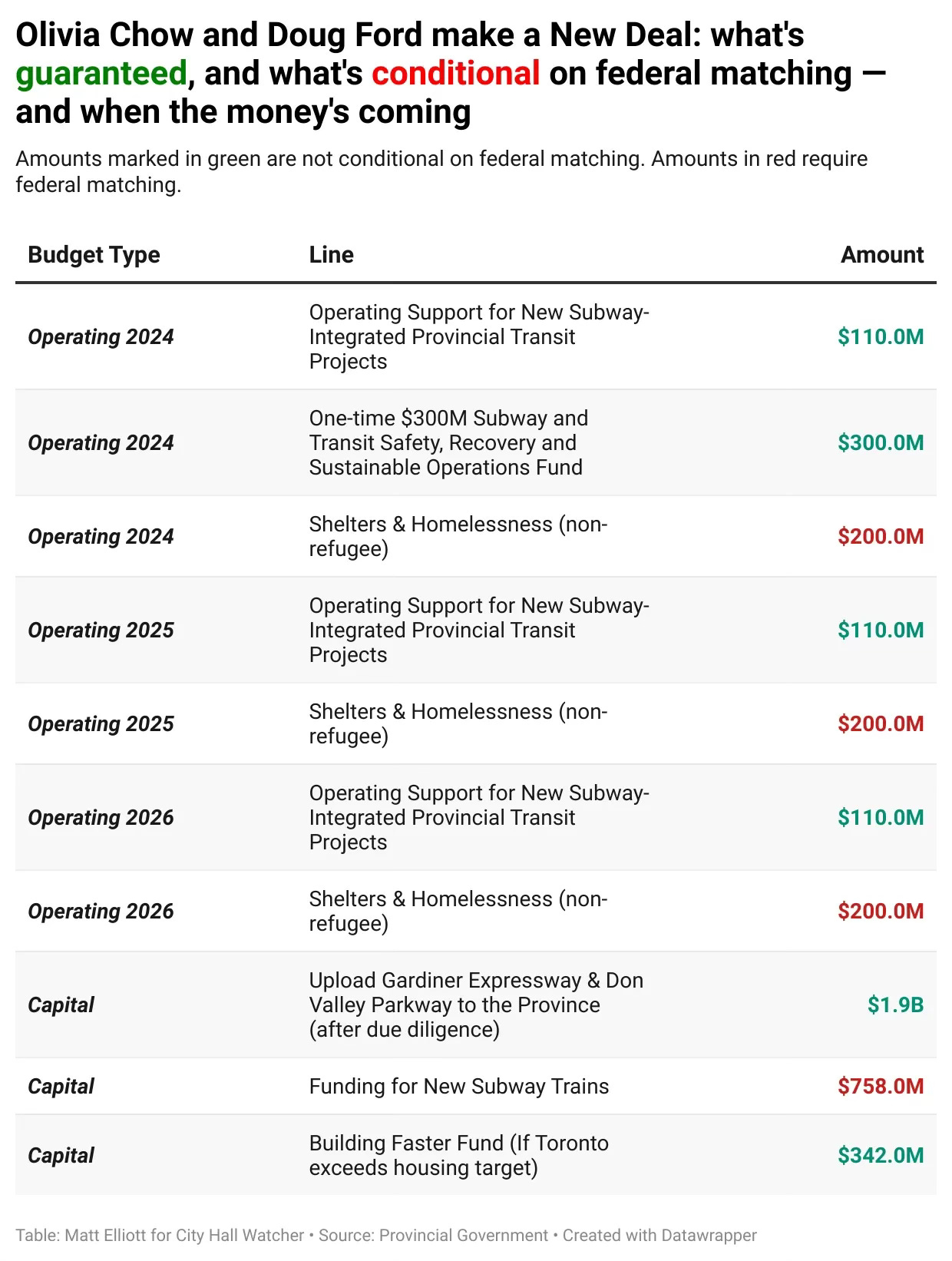
It has maybe not been said quite so many times in as many ways how lucky Toronto is to have you. Thanks for keeping us informed, and for making it fun. Happy new year!